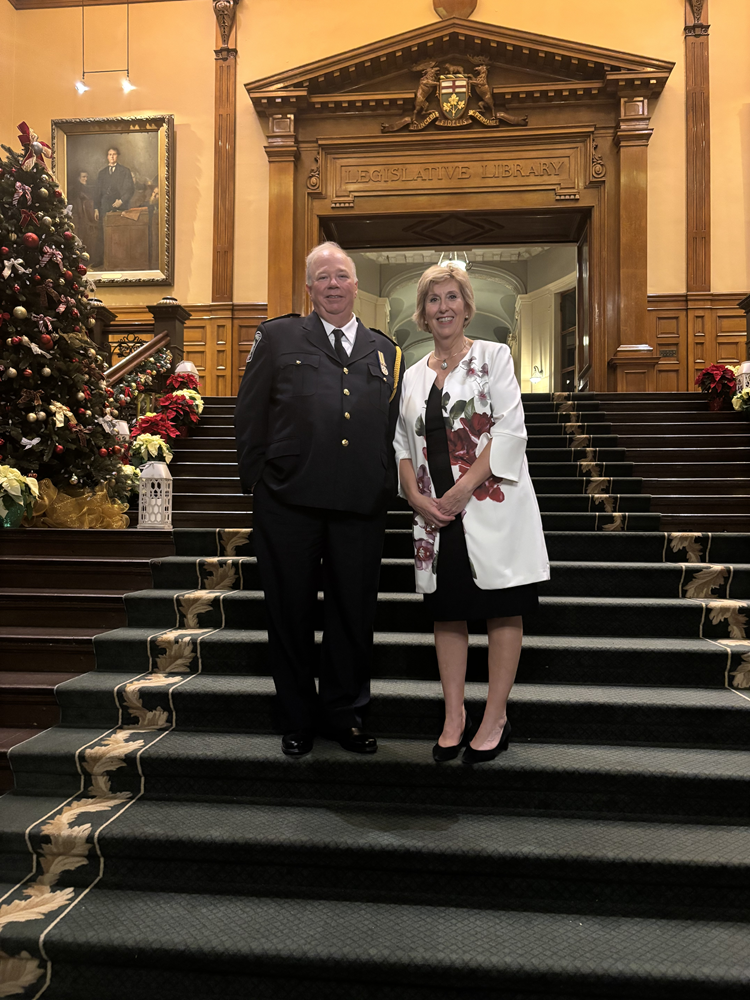When Haliburton County paramedic Chris Parish started working in the Highlands 33 years ago, he was an ambulance driver attendant.
“We would go as fast as we could, do minimal care, and drive to the hospital. It was called scoop and run,” he recalled in a recent interview. He added they worked all day, and were on call all night.
Nowadays, Parish said paramedics are highly-trained to deliver care in the field. He has gone from an ambulance driver attendant, to an ambulance officer, and now a paramedic. They can perform some skills that were once only performed by doctors.
Recalling the early 90’s when he began his career, Parish said, “we started with symptom relief. For example, we had nitroglycerin for chest pain. We weren’t treating anything. And then it expanded in scope to having more medications. For example, we used to have epinephrine to treat a bee sting. Now you have epinephrine and you can follow it up with Benadryl and even Ventolin to clear their lungs if need be. It’s nice to get to the hospital and the doctor says, ‘what do you want me to do’?”
He said the terminology is ‘treat and refer.’ He said rather than taking patients to hospital, in some cases, they can treat them in the field and they can stay at home with follow-up treatment with community paramedicine, or the diabetes education network, for example.
Just recently, Parish said he and his team went in for training on supraventricular tachycardia, a type of irregular heartbeat. He said they used to take people to hospital but now paramedics can do procedures in the home to convert the rhythm. “It’s better for them. It’s better for the system. Things like that have really changed.”
He said they’re also providing palliative care to keep people out of hospital, and at home. “We have a little bag of tricks and drugs that we can give to make them more comfortable.”
The training is so rigorous these days that paramedics have to recertify with the base hospital twice a year.
Honoured at Queen’s Park
In late November, Parish was one of 73 Ontario paramedics honoured at Queen’s Park for 30-plus years of service.
He was born and raised in Toronto but his parents were both from the Highlands. He worked here part-time while still in school. He was offered a full-time job in the County and has never looked back. He said he was never a city person.
“I’ve always liked it up here, coupled with the fact I got a job that was paying a living wage.” He said it’s a different pace and can be “good and bad” since you often know your patients.
However, in his view, “Haliburton County gets it done.” He references volunteer firefighters. “They come out every day and do what we get paid to do, and they’re a great resource that you wouldn’t get in Toronto, because they know people. They know that back road or they know that hunting camp.” He lauds the relationship with police and the base hospital.
He has seen it all: bringing babies into the world and being at people’s sides when they take their last breath. And tragedies that have stuck with him.
His love of community makes it a natural for him to head up community paramedicine. “Had community paramedicine not come along. I’m not sure I’d still be working. I am not the ‘lights and sirens racing down the highway’ kind of guy. That’s why I like community paramedicine. You get to spend time with your patients, you get to know them, and it’s not always a crisis.”
While knowledge of post-traumatic stress disorder for first responders has increased in recent years, Parish said, “you have to know what you’re getting into. You’re going to see some horrible things. You learn to live with it.”
As for getting the accolade at Queen’s Park? “You know, it is kind of a big deal but you don’t really think about it. It’s kind of corny but people invite us into their lives at the worst possible point in their life in a lot of cases. So, it’s kind of an honor to be able to support them through that.”





